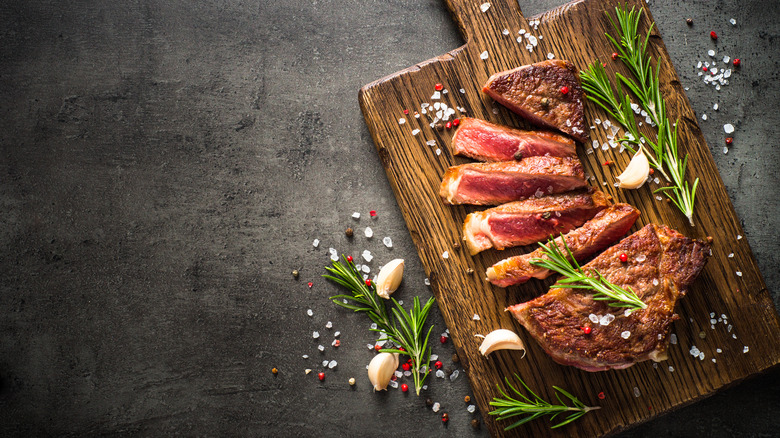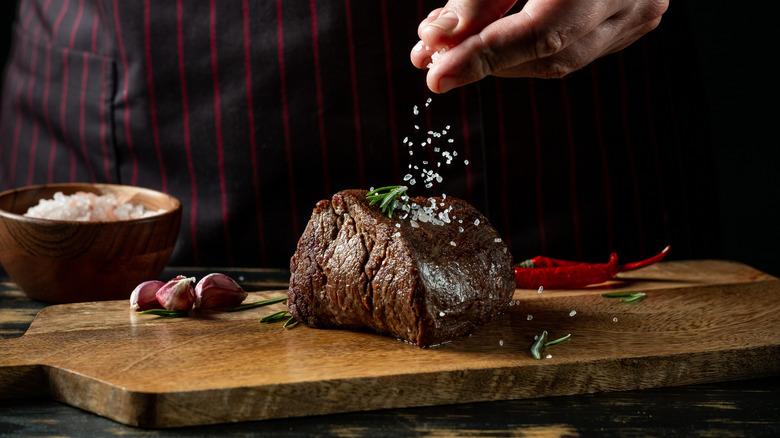The Salt Trick Restaurants Use For Perfectly Seasoned Meat
"The salt of the earth" is the highest praise for a reason. Salt rocks – pun intended. In his magnum opus "Kitchen Confidential," chef Anthony Bourdain praised salt as the king of the kitchen. "It's what makes food taste good," he said, via Time. "Traditional, intelligent and skilled used of salt has become confused in the minds of nanny-state nitwits with the sneaking of salt into processed convenience foods. Nothing else encapsulates the mission of the food ideologues better than this latest intrusion: they desire a world without flavor."
Indeed, in 2016, per Reuters, a New York State judge upheld a rule that requires restaurants to include a warning next to items on their menu with over 2,300 milligrams of sodium, which is the recommended daily limit. Perhaps unsurprisingly, the National Restaurant Association wasn't too thrilled — and understandably so. According to chef and television host Pati Jinich, salting can actually make food taste "more like itself" by bringing out its natural flavors. "Home cooks can be afraid of oversalting," says Jinich, via HuffPost. "But in many cases, under-salting leads to food that's bland or lacks oomph."
With that sentiment in mind, here's the salt trick restaurants use for perfectly seasoned meat.
Twice as nice with double-salting
Introducing: double salting. To achieve perfectly seasoned meat, Richard Blais, a James Beard-recognized "Top Chef" winner, recommends salting your meat once before cooking, and then again after it's finished, per Taste of Home. According to America's Test Kitchen, pre-cook salting enables salt granules to penetrate deep into the natural cleavages of the meat, lending a flavor-packed kick that'll come out during cooking. In fact, salting before cooking actually changes meat's protein structure, serving as a natural tenderizer. The outlet recommends salting at least 45 minutes before cooking, then salting again after cooking and slicing. If you forgot to salt your meat pre-cook, feel free to be a little more generous with your post-cook sprinkle.
Which salt to use, however, is up for debate. Blais recommends using a rougher variety like Morton Coarse Kosher Salt, which will firmly adhere to meat as it cooks, per Taste of Home. To this effect, Maldon Smoked Sea Salt Flakes are extra coarse, adhering well and adding a crunchy saline finish to your next flank steak or wagyu. By contrast, three-Michelin-starred chef Heston Blumenthal of England claims a finer sea salt is the way to go because it covers more of the meat's surface.

